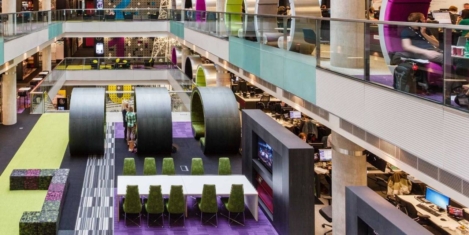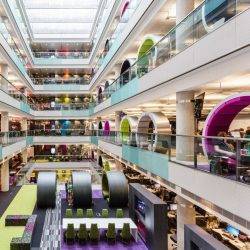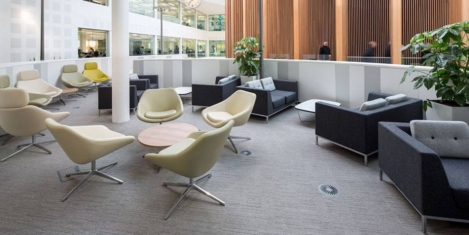October 14, 2016
Many employees remain reluctant to approach bosses for flexible working, claims study 0
 The sluggish uptake of flexible working following the introduction of new parental leave rights last year, may be down to the reluctance of many employees to ask for it. That is one of the conclusions of a new report from flexible working consultancy My Family Care and recruitment firm Hydrogen. It found that over half (54 percent) UK employees surveyed would like to work from home, but just a third (34 percent) actually do. The report surveyed 1,587 UK employees and 310 UK employers to gauge their attitudes towards and experience of flexible working. It found that over a quarter (28 percent) of employees said they did not feel comfortable even talking to their employer about the subject. Respondents claimed their wariness was down to appearing less committed and the implications for the careers and pay.
The sluggish uptake of flexible working following the introduction of new parental leave rights last year, may be down to the reluctance of many employees to ask for it. That is one of the conclusions of a new report from flexible working consultancy My Family Care and recruitment firm Hydrogen. It found that over half (54 percent) UK employees surveyed would like to work from home, but just a third (34 percent) actually do. The report surveyed 1,587 UK employees and 310 UK employers to gauge their attitudes towards and experience of flexible working. It found that over a quarter (28 percent) of employees said they did not feel comfortable even talking to their employer about the subject. Respondents claimed their wariness was down to appearing less committed and the implications for the careers and pay.

































October 11, 2016
Weird science; how workplace professionals are in danger of obsessing about data 0
by Jess Brook • Comment, Workplace, Workplace design
More often it means ‘research’ doesn’t generate anything new – which is not good for headlines. So, reports are dressed up as pseudo-science. This is not just an issue unique to UK the commercial property and workplace arena either. Only recently Dana Carney has challenged her joint research into the power of body language with co-author Amy Cuddy. Carney is arguing the results of research were false, plain wrong, based on bad science. This undermines valuable work being done by other groups in the market place – i.e. the great unwashed comprising directors of estates, HR professionals and facilities managers begin to tire of data and grow a little weary of the whole experience.
It’s confusing for the very people that need informing, educating and influencing so that they make intelligent decisions about their workplaces. For example, you cannot measure 28 factors relating to physical space and then argue that it allows clients to link workplace design to key business drivers such as employee engagement and organisational commitment. To make such a leap you need to focus very hard indeed on organisational culture and the behaviours of the people in that organisation.
Too often the key themes of culture and behaviours are not so much in the back seat, but left at the kerb side as the research vehicle heads off down the highway. Criticisms of open plan and the use of offices by those in a leadership position need to be placed in the context of that organisations whole way of being. It can work if allowances are made for culture and behaviours.
Allegedly, 89 percent of senior leaders have a private office. This is not open plan. True open plan, and where benefits of open plan are seen, is when everyone exists and works on a level playing field with numerous and varied alternate work areas being made available. Again, it’s not just about the spaces available. Some companies will introduce the variety and do nothing to change with behaviour to allow people to understand, embrace and feel able to use these new and different spaces. It’s the same way the presence of a DJ and dancefloor don’t mean that people will automatically dance – just think of the bad parties with no atmosphere and awkward people.
Workplace professionals have a duty to think this data through before making any claims, arguments or indeed, any recommendations. Too many decision makers in the C-suite are saying right now: “OK, based on this data I’ll put everyone in open plan, buy sit stand desks for all and provide people with some enclosed settings and we’re good to go,” and still find the business is no more engaged or innovative because it’s not based on how the company actually operates and does not factor in people, change or culture.
We all need to check this data thoroughly before making too many easy headline grabbing and PR driven conclusions. After all, it’s not always easy to know good from bad – just ask a doctor. Doctors may know the latest scientific research but they evaluate patients at a personal level before any application – and businesses need to do the same. Likewise, an Oxbridge or Harvard professor like Amy Cuddy or Dana Carney should be generating good science, but that’s no excuse for not constantly challenging the research that comes through.
Don’t take these PR headlines about workplace for truth. Let’s be careful out there people.
________________________________